Skin & Hair Care
Skin Care
Introduction
Your skin works hard to keep you healthy, and you can return the favor by taking care of it. Here are some tips to help you keep your skin looking and feeling good.
Sun care
Sunlight contains ultraviolet (UV) rays, which are the main cause of skin ageing and can cause skin cancer. Sunburn can significantly increase the risk of skin cancer, so it’s important to protect skin against sun damage at any age, but take special care with babies, children and young people.
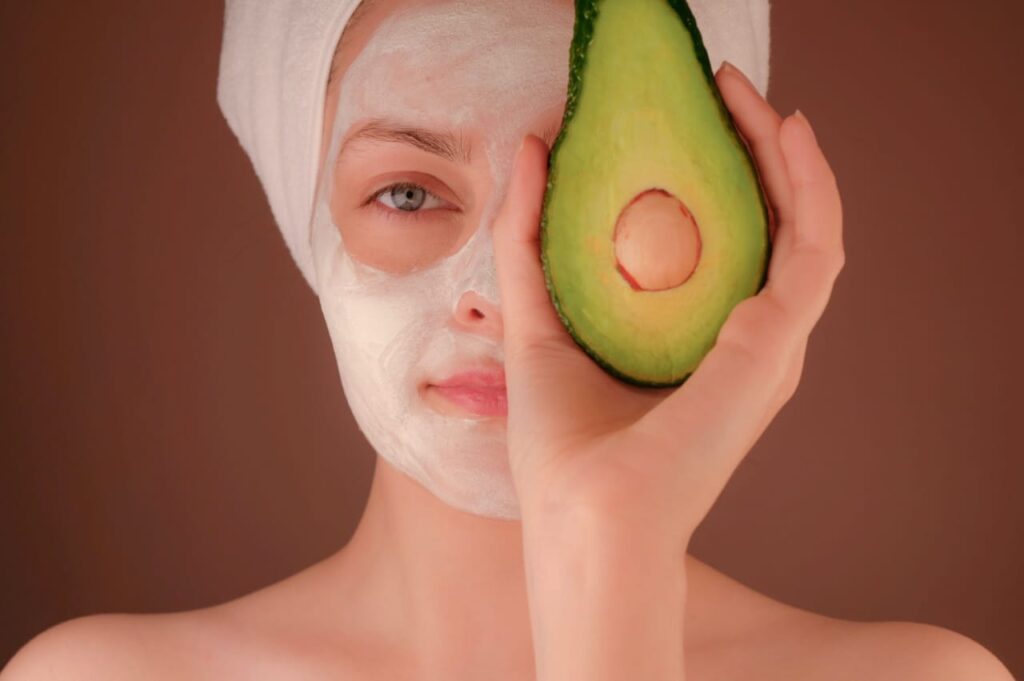
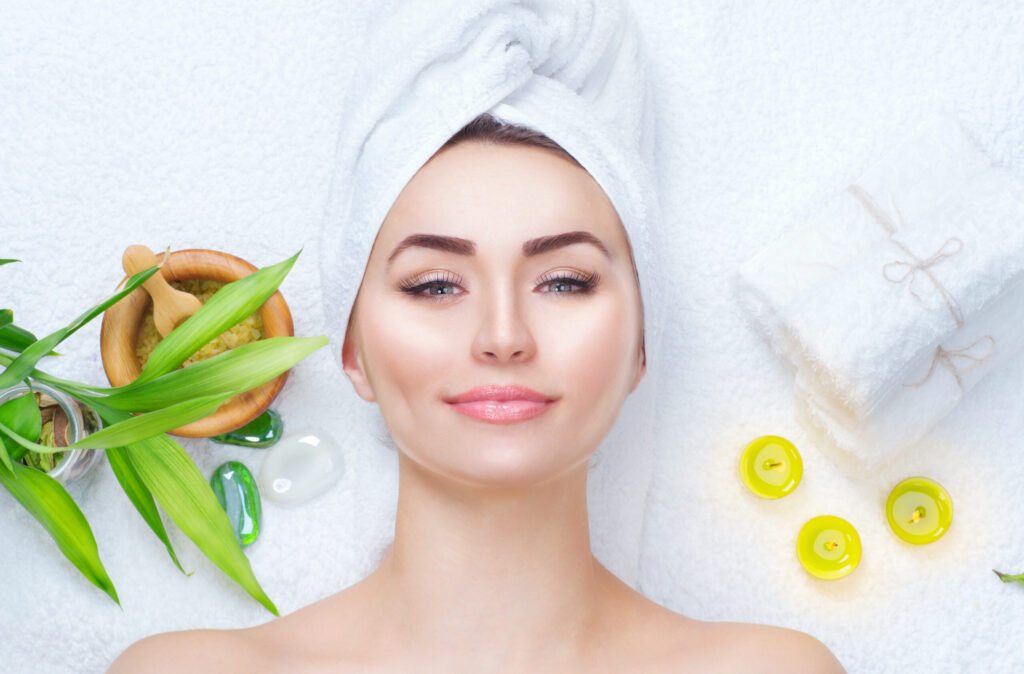
To help protect yourself:
Spend time in the shade between 11am and 3pm
Cover up with clothes, a hat and sunglasses, use sunscreen with a sun protection factor (SPF) of at least 15
You need to spend some time in sunlight so your body can make vitamin D, which is essential for healthy bones.
To find out more about balancing the need for getting vitamin D and protecting your skin from sun damage, see how to get vitamin D from sunlight.
Find out more about sunscreen and sun safety.
Washing your skin:
Try to use mild soaps or bath oils – too much washing or using harsh soaps can wash away the natural oils that keep our skin healthy. If you have dry skin, don’t use harsh alcohol-based products as these can irritate skin and dry it out. Moisturising can help prevent dry skin. If you have oily skin, avoid oil-based products and choose water-based ones instead.”
Smoking:
Smoking is linked to early ageing of the skin. It’s thought smoking reduces the skin’s natural elasticity by causing the breakdown of collagen and reducing collagen production. Collagen is a protein that supports skin strength. It also reduces blood flow to your skin, so your skin gets fewer nutrients and less oxygen.
Alcohol:
When you drink alcohol, your body and skin can become dehydrated, leaving the skin looking older and tired. Drinking water can help your skin stay hydrated, preventing it drying out. When you have alcohol, try to drink within the recommended limits, and have a non-alcoholic drink, such as soda water or fruit juice.
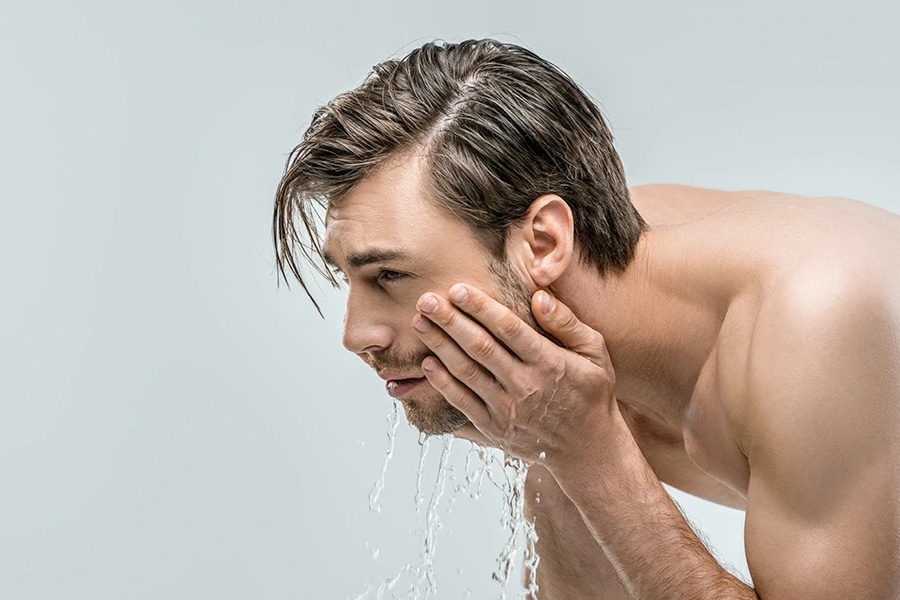
Building a daily skin care routine:
No matter what your skin type is, a daily skin care routine can help you maintain overall skin health and improve specific concerns like acne, scarring, and dark spots. A daily skin care routine has four basic steps you can do once in the morning and once before you sleep.
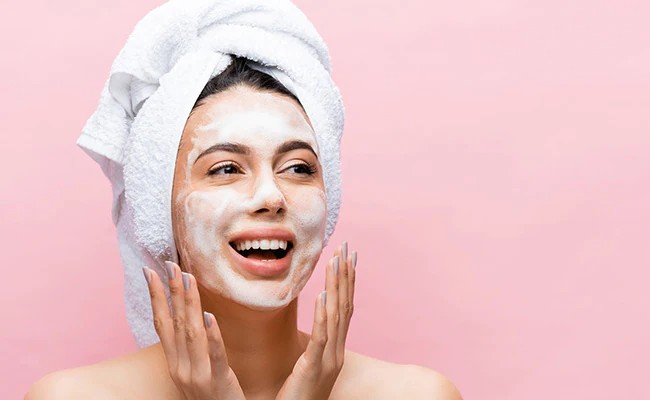
- Cleansing:
Choose a cleanser that doesn’t leave your skin tight after washing. Clean your face no more than twice a day, or just once, if you have dry skin and don’t wear makeup. Avoid washing for that squeaky-clean feeling because that means your skin’s natural oils are gone. Cleansers known to work well for all skin types include Cetaphil and Banila Clean It Zero Sherbet Cleanser.
- Serums:
A serum with vitamin C or growth factors or peptides would be better in the morning, under sunscreen. At night, retinol or prescription retinoids work best. Makeup Artist’s Choice has an effective vitamin C and E serum and retinol available.
- Moisturizer:
Even oily skin needs moisturizer, but use one that is lightweight, gel-based, and non-comedogenic, or doesn’t block your pores, like CeraVe’s facial lotion. Dry skin may benefit from more cream-based moisturizers like MISSHA Super Aqua Cell Renew Snail Cream. Most brands will label their products as gel or cream on their packaging.
- Sunscreen:
Apply sunscreen with at least 30 SPF 15 minutes before heading outdoors, as it takes a while for sunscreen to activate. Darker skin tones actually need more sun protection because hyperpigmentation is harder to correct. Try EltaMD’s sunscreen, which offers broad-spectrum UVA/UVB protection and is recommended by the Skin Cancer Foundation.
Choose products that fit your skin type and sensitivity, and remember to read the labels. Some products, such as retinol or prescription retinoids, should only be applied at night.
For all skin types
Stay hydrated Change pillow cases at least once a week, Wash or wrap up hair before bed, Wear sunscreen every day and apply 15 minutes before going out, Start with a basic and simple routine to see how your skin reacts. Once you’re comfortable, you can then add extra products such as exfoliants, masks, and spot treatments to boost your skin’s health”
DIY hacks to avoid (even if everyone does it)
People report wonders from using DIY hacks like lemon juice and toothpaste for common skin problems like acne bumps and dark spots. Even award-winning actress Emma Stone claims her skin care secret is baking soda. But the truth is these hacks may cause more long-term harm than benefit because they can damage your skin’s barrier.
Avoid these DIY hacks
Sugar:
As an exfoliant, sugar is too harsh for the skin on your face.
Vitamin E:
Topical application of vitamin E can irritate your skin and is not proven to improve scar appearance.
Some of these ingredients may be all natural and cost-effective, but they aren’t formulated for your skin. Even if you don’t feel immediate side effects, these ingredients can cause delayed or long-term damage. It’s best to use products Formulated for your face. Talk to your doctor or dermatologist before trying DIY applications on your skin.
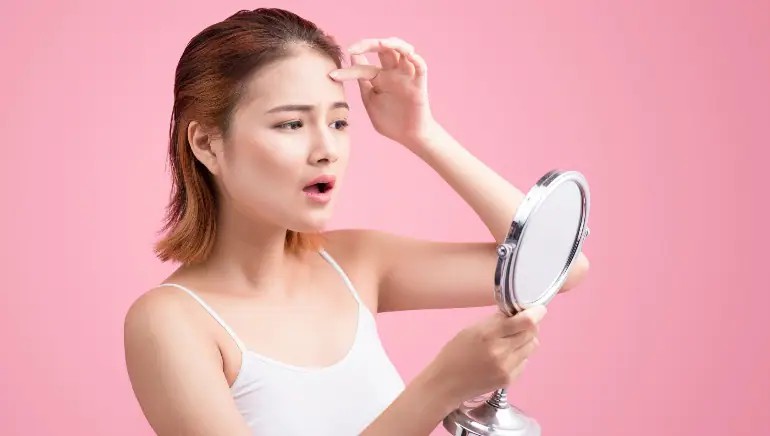
Lemon juice:
It may have citric acidic, but it’s far too acidic and can cause dark spots to appear after sun exposure. It can also dry and irritate your skin.
Baking soda:
At a pH level of 8, baking soda will stress your skin, significantly decrease Trusted Source your skin’s water content, and cause dry skin.
Garlic:
In raw form, garlic can cause skin allergies, eczema, skin inflammation, and watery blisters.
Toothpaste:
The ingredients in toothpaste may kill germs and absorb oil, but they can also dry out or irritate your skin.
Hair Care
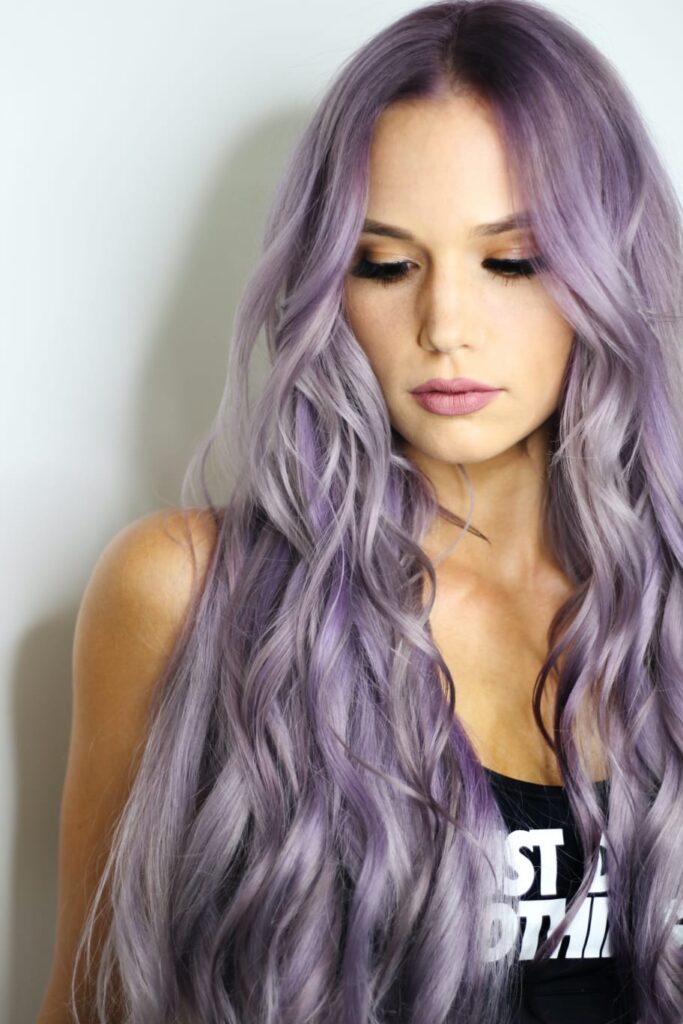

Hair Care Dos
Wash Your Hair Regularly
Washing your hair regularly ensures that your scalp and hair is free of dirt and excess oil. However, the right frequency depends on your hair type and personal preferences. If you have extremely dry hair, limit your washing to twice a week. If you have an oily scalp, washing your hair on alternate days can help.
Use Chemical Free Shampoos
You really can’t control all the environmental factors that damage your hair, but what you can control is the kind of shampoos you use. Lesser the number of chemicals in your shampoo, healthier your hair. Go for gentle shampoos that suit your hair type.
Condition Correctly
Your conditioner contains ingredients that make the hair fall straight and manageable. It protects your hair from environmental aggressors and heat styling. However, it should be applied only on the tips of the hair and not on your scalp. Also, make sure to rinse it off thoroughly post application.
Dry Your Hair Naturally
We know. Blow drying makes your hair as beautiful as that of your on-screen idol. But excessive heat styling can damage your hair scalp. Limit it to important events, if you have to style. Air drying or towel drying after shampoo is the best way to go. Never sleep in wet hair or comb wet hair. Harsh rubbing with a towel can damage the cuticle of your hair. Be gentle.
Oil Your Hair Properly
Pre-shampoo treatments like oiling and massaging improve blood circulation on the scalp, relax your muscles, boost shine and nourish the hair. It also restores moisture content, enables hair growth and repairs split ends. You can choose from coconut oil, almond oil, olive oil, castor oil and the likes. Avoid using mineral oil on your hair.
Pro Tip:
Once in a while, apply warm oil and wrap your head in a towel to let the oil work its way. Consider a mask to soothe the cuticle of your hair before shampooing. It helps in reducing the friction between hair strands during shampoo application.


Toothed Comb
Wet hair is fragile and prone to breakage. Let your hair dry and then use a wide-toothed comb to brush your hair. This kind of a comb prevents damage to your hair.
Style Your Hair Naturally
Who does not like those gorgeous curls or perfect waves? But you can achieve these without putting your hair through heat. Here’s how:
If you still wish to use a curler or straightener or a blow dryer, invest in a good heat protectant serum first.
Trim Your Hair Regularly
Trim your hair every 6-8 weeks to get rid of split ends. Split ends form when the hair is damaged due to heat styling, pollution, smoking, stress and so on. Trimming does not magically make the hair grow faster. Hair growth happens at the scalp level, but trimming ensures healthy hair.
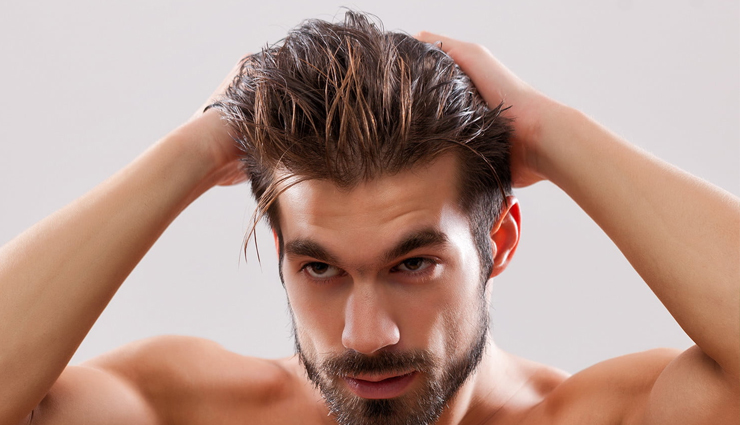
Drink More Water
Internal hydration coupled with external hydration is the key to well-balanced and healthy hair. You may be using hydrating hair care products and oils, but drinking at least 3 liters of water everyday ensures good hair health.
Eat Healthy
We will go on repeating ‘you are what you eat’ as long as we write about hair care and skin care. Your hair is made of proteins and amino acids. It needs the right nutrition to grow well and maintain itself. Eggs, berries, nuts, fish, green leafy vegetables, sweet potatoes are some of the many great foods for healthy hair.
Use Hair Caps/hats
Just as sunlight has a damaging effect on your skin, it applies to your hair too. Harsh sun rays can remove the moisture from your hair making it dry, brittle and damaged over the course of time. Use hats when you step out to protect your hair from this damage. Protect your hair with caps when you are in a swimming pool. Chlorinated water is bad for your hair.
Use Hair Bands
We love to flaunt our open hair, but do use hair bands to limit the hair exposure to environmental aggressors. Use fabric hair ties instead of the plastic ones. Don’t pull your hair too tight when making a ponytail or any other hairstyle.
Use A Hair Wrap Or Old T-shirt To Dry
This one’s new. Your t-shirt can be used to dry your wet hair without causing damage to the hair. Traditional towels are rough on your hair cuticles and damage your hair over time. Save up your soft, old t-shirts from now on!
Hair Care Don’ts
Hot Showers
Hot showers strip off the natural oils from your scalp leaving it dry and flaky. Cold showers are your best bet.
Stress
If you notice someone with healthy hair, we can bet our lives and say that they worry a little less. Stress can cause hair fall and unhealthy hair.
Chemicals
Chemicals from dying, perming and other hair treatments affect your hair follicles, disrupt hair growth and can also lead to hair fall.
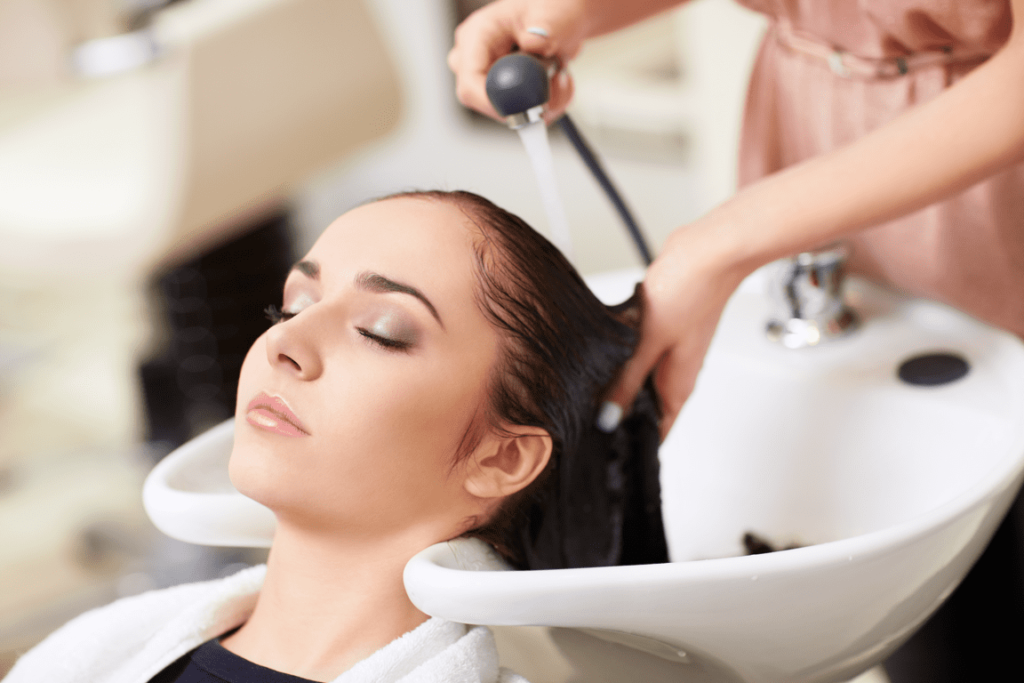
Hair Styling Products
Heat styling using straighteners, blow dryers and curlers for prolonged periods changes hair texture, makes hair dry and prone to breakage.
Salt Water Hair Wash
Salt water damages the hair cuticle, irritates the scalp and makes the hair tangled. Avoid chlorinated water in swimming pools.
